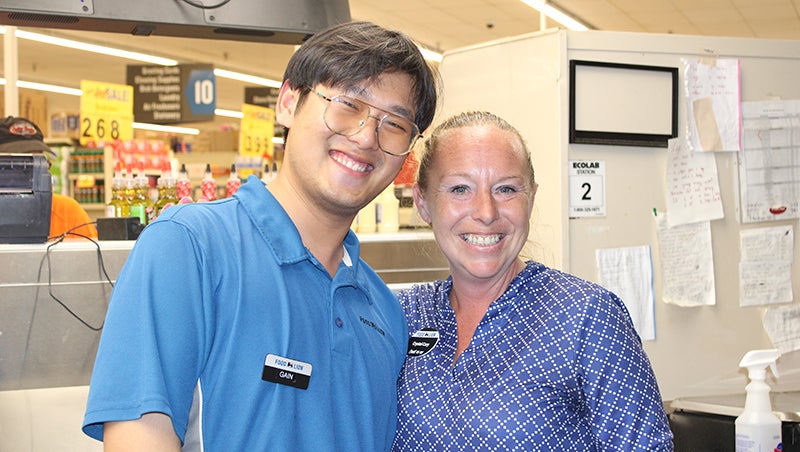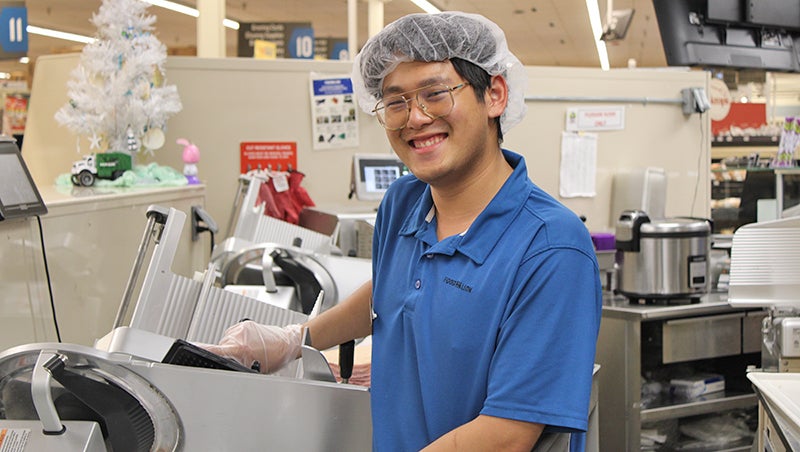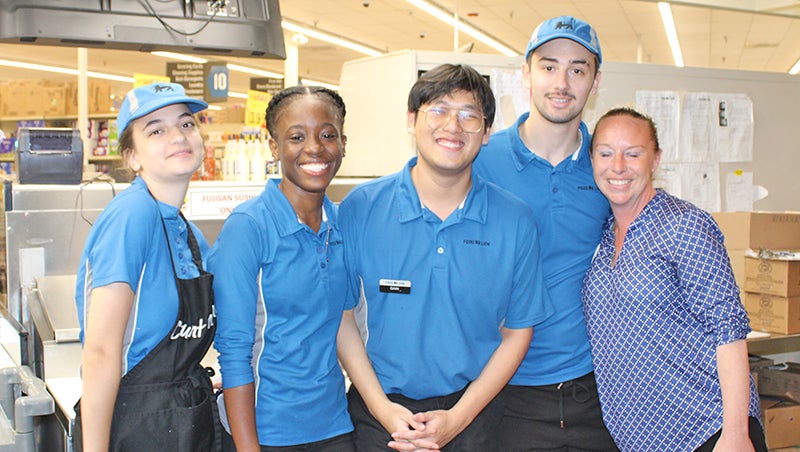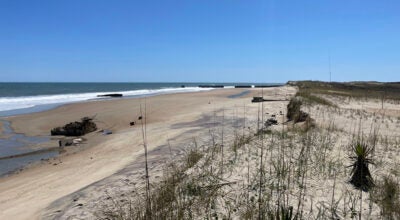J-1 student reflects on time on the Outer Banks: Theerakan ‘Gain’ Chaikaeodang shares his favorite experiences, biggest challenges and the American food he fell in love with.
Published 11:36 am Saturday, October 28, 2023
|
Getting your Trinity Audio player ready...
|
Theerakan Chaikaeodang, a 22-year old new graduate from Thailand, recently wrapped up a three and a half month stay in Avon on a J-1 visa.
The Coastland Times caught up with him for an interview on his last day of work to hear about his experiences living and working on the Outer Banks.
Gain – the nickname he chose when he arrived in the United States – was a little nervous about his newspaper interview, but he lit up when he started talking about the friends he made this summer.
He was hired to work at Food Lion in Avon, along with more than a hundred J-1 students who secured work visas.
Before students arrive, they have a signed contract with Food Lion stating their minimum work hours, pay rate and a housing agreement. Food Lion arranges rentals, but students pay for it out of their paychecks. “All they have to do is worry about getting to Elizabeth City where we pick them up and then we arrange everything from there,” said store manager Crystal Cary.
She described the students’ experience as a “rollercoaster of emotions” between arriving in a new country: “You are nervous and scared and missing home, but you’re meeting new people and having fun. Before you know it, the program is getting ready to end and you’re thinking of all the friends you’ll miss. At the same time, you’re excited to return home and you’re your family. It really is a rollercoaster.”
Gain roomed with five other international students from Jamaica, Ecuador, the Philippines and Thailand. He and his roommates would cook together and share their native recipes.
And his favorite American food? It’s something he makes himself in the Food Lion deli.
“I really love riblet,” Gain said, smiling, “and I feel like I really I want to spend my money with that.”
Cary laughed. “That’s a new one. Most people say cookies or candy.”
“I just say it’s quite hard to leave here because I have many, many memorable experience,” he said, endearingly leaving off the plural throughout our conversation.
“They’re not just here to work. We’re here to treat them like family, care about them like family – trust me, I treat them like they’re my own children … it changes our lives. These next two weeks [as we say goodbye] we’ll all end up crying,” Cary said.
For Gain, one of the biggest benefits was the opportunity to observe his deli manager. When he returns to Thailand, he wants to work in management at a large supermarket chain, so he was careful to pay attention to how she organized the department and how she handled situations and people.
Though he was contracted for a minimum of 32 hours, most weeks he put in double that. In the spring shoulder season before the rest of the workforce arrived, Gain said he had a couple of weeks where he worked almost a hundred hours a week.
Despite the long hours, when asked what he will miss the most when he returns to Thailand, he quickly answered: “Oh absolutely for that Food Lion. In here is the place that I meet the good people like my manager, my coworker, my friend from other country. [When] I go home I will miss the time that I have with friends. We live together, we do we work together … I feel like actually I cry already.”
But not all of Gain’s interpersonal experiences were positive.
“Some consumer they are quite mean,” he said, recounting a story of being scolded because he didn’t have an order of fried chicken ready when a customer wanted it. It’s one of the only times during our interview that he wasn’t smiling. But he’s quick to look on the bright side.
“I feel like actually I do my work – everything that I can do. That day it is made me like feel like it’s the first time that I got through something like that. I have a little hard time but the good things that I get from this experience [is that] my manager protect me,” he said.
“We don’t look at it as ‘they’re here to work for three months,’” Cary said. “The impact we have over the next three months of their life – what they’re going to carry into their future – they’re now developing their careers … it’s a footprint in their entire life.”
SUBSCRIBE TO THE COASTLAND TIMES TODAY!









